The industry says newer varieties and the changing climate could increase acres, particularly in east-central Saskatchewan
Soy Canada is looking to western Canadian growers, particularly in the black and grey soil zones, to meet its goal of 10 million acres by 2027. East-central Saskatchewan shows potential, thanks to newer varieties and the changing climate. Executive director Brian Innes told a recent SaskPulse seminar that climate trends projecting hotter weather might be […] Read more Crop Management
Crop Management
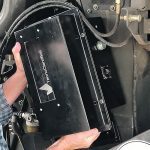
Grain lab joins the combine
Seed segregation maximizes price premiums for producers, and consumers worldwide are becoming more discerning about their food. In response, commodity buyers and food processors often offer price premiums for specified characteristics. To make the most of those price premiums, producers need to measure and document the characteristics of grain going through their combines. Price premiums […] Read more

Seed lab can be taken to the field
In today’s lexicon, a “black box” is any proprietary system of inputs and outputs and mysterious happenings within. Outsiders have no knowledge of its internal workings, thus the term “black.” HarvestMaster has taken the black box image seriously. Its new H3 NIR GrainGage is, quite literally, a square black box. It’s the industry’s first ever […] Read more
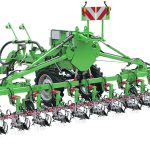
Inter-row cultivators replace herbicides
The farming world is turning away from chemical weed control, and since Europe is the trend leader, it’s logical that the latest non-chem technology comes from there. The Swedish company Väderstad is at the forefront of new seeding technology. It had a hole in its equipment lineup in the area of inter-row cultivation. So, it […] Read more
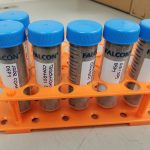
Lab offers needed feed, water analysis
BRANDON — Quality feed and quality water are essential in any successful livestock endeavor. But to guess about quality is to cheat your animals and your business. Accurate scientific analysis is needed. Central Testing Laboratory has provided analysis in Manitoba for more than 90 years. The Winnipeg lab runs certified full analysis on grain, forage, […] Read more
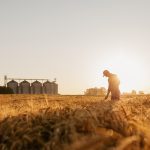
New research program focuses on ‘whole farm’
Manitoba Crop Alliance has started a program in which it takes ‘whole-farm, cross-commodity approaches to research’
Most crop research in Canada is highly specific. A plant pathologist may study a specific disease, like fusarium head blight in spring wheat. Or a soil fertility expert will look at the phosphorus needs of flax. That research happens because the group representing a single commodity, a provincial wheat commission or a flax association, will […] Read more
Senators want early no-till adopters recognized
Senators on the agriculture committee studying soil health questioned departmental officials last week on how and why they left early adopters of no-till out of incentive programs. Quebec senator Chantal Petitclerc said the early adopters started storing carbon without the benefit of grants, programs and subsidies that are now available from the federal government. “What […] Read more

Man. growers honour canola expert
Michael Eskin, a member of the Order of Canada, has received another honour from the Manitoba Canola Growers Association. On Feb. 15, the MCGA recognized Eskin with the 2023 Canola Award of Excellence Award for his lifetime of research into canola oil. “From his early involvement in the development of canola oil, to his efforts […] Read more
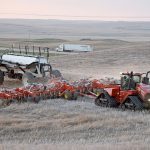
Input costs climb
Farmers are expected to spend a record $23.1 billion on fertilizer, fuel, chemicals and seed this year as costs soar
Canadian grain producers will be spend more than ever to plant their crops this spring, says Canada’s largest farm lender. According to its 2023 Farm Input Market Outlook, Farm Credit Canada projects that Canadian farmers will spend a record $23.1 billion on fertilizer, fuel, chemical and seed this year, making the 2023 grain and oilseeds […] Read more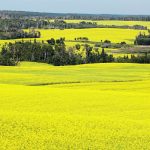
Research firm finds new clubroot-resistant genes
Company has stacked the genes into one canola variety, which it hopes to commercialize in the next few years
Genomics company NRGene, based in Saskatoon, has discovered new genes with durable resistance to clubroot. NRGene Canada, which opened its new genotyping lab in Saskatoon last year, has identified what it believes will provide “durable” resistance to clubroot, a soil-borne disease of canola. “The farmers are frustrated because there are not so many options available… […] Read more


 Crop Management
Crop Management


